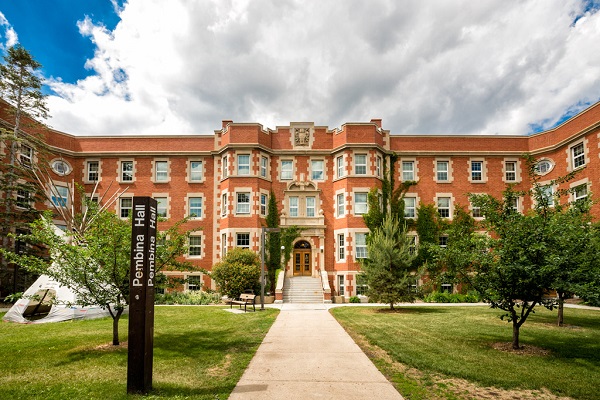University of Alberta: Finding Our Common Threads During International Week
During International Week (I-Week) 2022, the U of A community is looking forward to conversations surrounding the United Nations’ 2015 Sustainable Development Goals. 2022 is the halfway mark to the milestones set for the year 2030. In the midst of the pandemic, it can be hard to find optimism about these targets: nearly every one of the 17 goals has been set back by the conditions of the pandemic, in many cases erasing the hard-won progress of the preceding years.
That doesn’t mean we should discount the wins, as there have been critical successes pertaining to many of the SDGs. On the gender equality front, we’ve seen some amazing things happen locally. Canada’s recent implementation of a plan to reach $10/day average costs for child care within five years will be an incredible boon for families, allowing more people to find work, attend school and care for their communities. Recent elections in Canada and the United States have seen record numbers of people of colour and marginalised genders running for office, and here in Edmonton we’re celebrating our new, most diverse-ever municipal government. But recent events also remind us that social progress is not a straight line, and that if we don’t build strong support structures, our wins can slip away from us. Surges in right-wing governments coming to power around the world have resulted in a loss of access to reproductive autonomy that will have devastating implications for already marginalized groups, as abortion becomes a privilege of the elite.
The precarity of women’s positions in the workplace has been highlighted by the pandemic, with women disproportionately bearing the burden of childcare and home-schooling. We have already seen some of the short-term impacts of this shift, with younger women in academia seeing significant setbacks in their capacity for conducting and publishing research, and I expect that we will be seeing ripples from the pandemic in women’s careers across many fields for a generation.
In the face of the oft-overwhelming challenges facing the world today, I sometimes find myself questioning my chosen field of study. Choosing to study gender in video games, in the middle of a pandemic and as climate change increasingly shows its impacts, makes me feel like that little bulldozer trying to get the container ship out of the Suez Canal. How can we study art or history or theoretical physics in the face of these seemingly urgent priorities? Ironically, the answer may lie in the pandemic itself. For me, COVID-19 has underlined what many working on the world’s “wicked” problems have long known: that all of the issues facing us are interconnected, and so too are the solutions. Whether the issue at hand is a global pandemic, climate change, income inequality or creating a sustainable global economy, our efforts must be wide-reaching and coordinated if they’re to make a difference.
This can sometimes be an overwhelming thought: why bother with our individual efforts pushing against the momentum of systems like capitalism or white supremacy that seem hell-bent on pushing us over the edge? But I think this line of thought also offers us a new window of hope and opportunity. If everything we do is interconnected, then our acts of hope and change are too. My own research on cultural interventions in the values of patriarchy isn’t just contributing to gender equality—it’s contributing to a reduction in poverty, to a system in which people have the flexibility to make choices that benefit their natural environments and communities, to a world in which we have the energy and the power to demand better of our governments, of corporations, and of each other. The rise of mutual aid networks, defund the police movements, and co-operative approaches to our problems suggest that if we can see our causes as threads to be woven together, we can work to form a tapestry of the world we aspire to. That, I think, is the vision the breadth of the Sustainable Development Goals can offer us—a vision of the future in which no one is left behind, in which we tackle problems not in isolation but as part of the whole.
As you attend all of the amazing talks and events that International Week has to offer, I encourage you to think about not just how a solar energy program contributes to clean energy, but what it might mean for income inequality or political peace. How improving access to primary education around the world can move the needle not just on education and socioeconomic opportunities, but on sustainable economic systems and cleaner oceans. The events of International Week highlight work from many different disciplines, and give us an opportunity to think beyond specific fields or areas of study to our broader hopes and dreams for humanity and the planet. As our world becomes increasingly interconnected and interdependent, so too do our problems. If we are open and curious enough to see ourselves as part of the network, we gain the capacity to be part of the solution.

